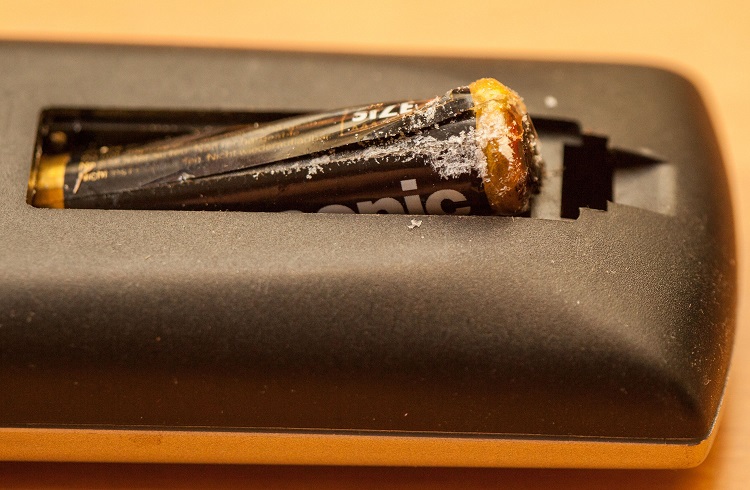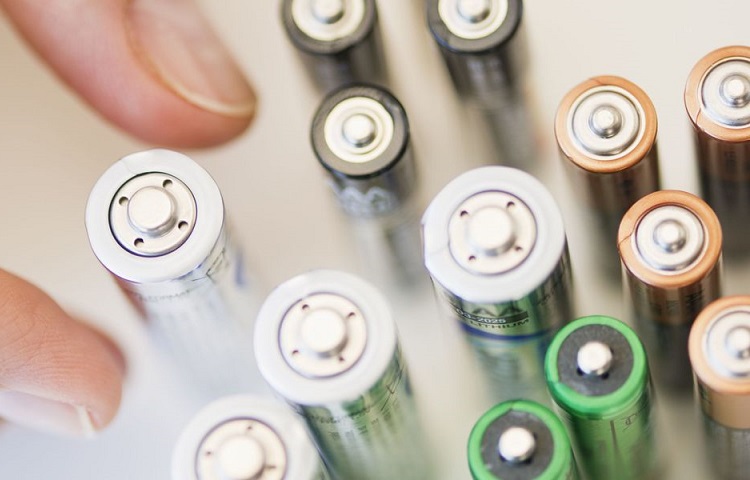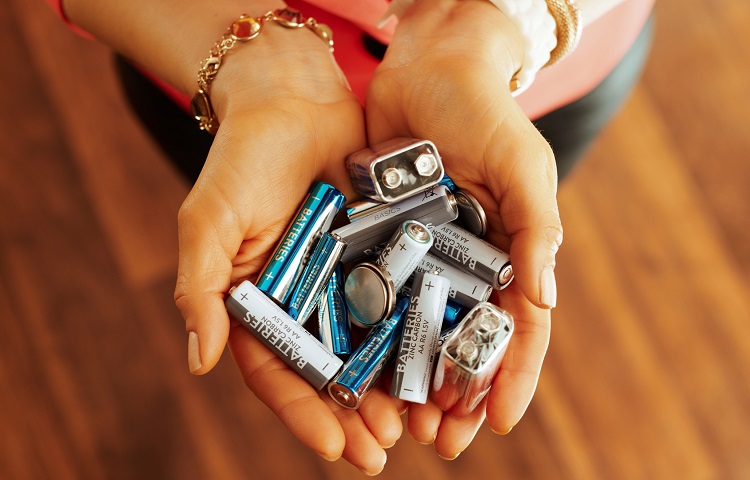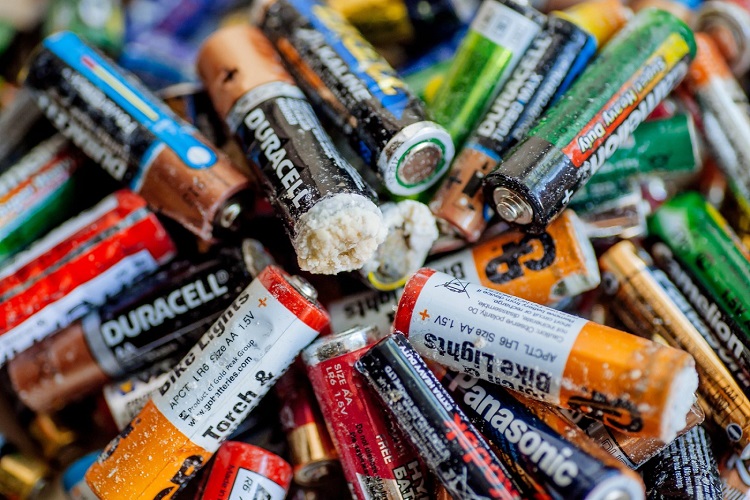You reach for your flashlight only to find it’s not working.
You open its battery compartment and see that the batteries are leaking or or have white residue on them. These are signs of battery corrosion.
Why do batteries corrode?
Corrosion is caused by a chemical reaction as a result of hydrogen gas building up pressure and then escaping from inside the battery.
Some batteries corrode more easily than others. Let’s explore more about battery corrosion so you can equip yourself with ones that won’t let you down and you can ensure you store them correctly to prevent it from happening in future.
Do Alkaline Batteries Corrode?

Alkaline batteries are commonly affected by corrosion.
They leak with age, although there are other factors that can degrade them, such as if they’re stored in high levels of humidity.
When the pressure builds up inside the battery, the battery’s walls expand and its seals break. Hydrogen is released, as well as potassium hydroxide – this is the reason why you’re seeing white residue on the batteries.
Do Rechargeable Batteries Corrode?
Although rechargeable batteries are not likely to fail, they can end up leaking.
They can also fall prey to small quantities of corrosion. What causes them to become damaged is when they’re overcharged.
They are less likely to produce corrosion, however, as compared to alkaline batteries.
Do Lithium Batteries Corrode?
Lithium batteries can expand or bloat – this is dangerous as the batteries are highly combustible.
If your lithium batteries have expanded while still being in a product or device, you should not try to remove the batteries as this is dangerous. A specialist will have to assist you to remove the batteries and check if the product is still functional.
How To Prevent Battery Corrosion

You can prevent batteries from becoming a leaky, powdery mess by looking after them and storing them correctly. Here are some important tips.
- Keep your batteries in a dry, cool place below room temperature.
- Check the batteries in your torches or other survival prepper products on a regular basis – aim for once a month. Test that the batteries are still in good condition and that the product works.
- If you’re stocking up on batteries and keeping them in long-term storage for when you’ll need them, it’s best to store them separately from products in which you’ll use them, such as torchlights.
- Don’t store batteries in the freezer. While you might’ve heard this is a good practice, you should never keep your batteries in the fridge or freezer. Condensation from fridges will damage the batteries and extremely cold conditions will decrease the batteries’ lifespans.
- Keep your batteries in their original packaging. This protects the batteries and prevents them from coming into contact with metal objects that can degrade them and cause them to leak. This is also why you shouldn’t keep your batteries in a drawer or cupboard, as metal objects such as pins can damage them.
- Purchase a battery tester. This will help you figure out which batteries in your collection are good and which ones aren’t so you don’t mix them up. In future, make sure that you store the good and bad batteries separately.
- Store your rechargeable batteries at around 40 percent charge. This gives them the chance to slowly discharge.
How Long Do Batteries Last In Storage?
Generally, unused alkaline batteries can last around five and 10 years, Ni-MH batteries will last three to five years, and lithium batteries (which you’ll find in devices such as mobile phones) could last for about four years.
If you’ve found some old batteries in your home but you’re not sure if they’ll still have a long lifespan and are therefore worth keeping, you should check its expiration date. You can find this on the batteries themselves, although sometimes it’s in different locations.
Generally, though, batteries will have the expiration date printed near their chemical composition or battery type information.
How To Dispose Of Corroded Batteries

If your batteries have corroded, you have to dispose of them safely and responsibly.
Don’t throw them in the regular trash as they can leak into the environment, such as into the soil. It’s best to put them in a plastic bag and bring them to a battery collection site that will be able to dispose of them correctly.
Related Questions
How can you clean the white battery corrosion residue in your devices?
You’ve removed batteries from a product, but now there’s still white powder in the device.
This can clog the contact points for the new batteries, so clean it by dipping a cotton swab in white vinegar. Then use a dry cotton swab to scrub at the affected spots.
What happens if you handle potassium hydroxide?

In liquid form, this can irritate your skin, eyes, and lungs, so avoid getting into contact with it and consult a doctor if you have made contact with it.
In powder form, you should avoid breathing it in, and protect your skin with gloves when handling it.
Conclusion
Batteries corrode and this corrosion causes them to stop working or it clogs the contact points in your devices, so it’s essential to know how to prevent it from happening.
In this article, we’ve provided you with information about batteries that do and don’t usually corrode, as well as how to prevent battery corrosion from occurring so that when you reach for a flashlight during a power cut you don’t have to worry about it not working.
Sources:


Always place tape over the terminals of 9 volt batteries. The terminal can be shorted in the trash and may have enough charge left in them to overheat from the short and cause a fire. A number of house fires have been caused by shorted 9 volt batteries.
Ahhh. Who is this “specialist” and how do I contact to remove lithium bloated batteries?
The devices are older and not under warrantee. Thinking I have 1 or 2 older digital cameras that had a deformed battery preventing removal.
A company like “Batteries Plus Bulbs” or another battery specialist shop might be able to help with something like that. Check their repair services.